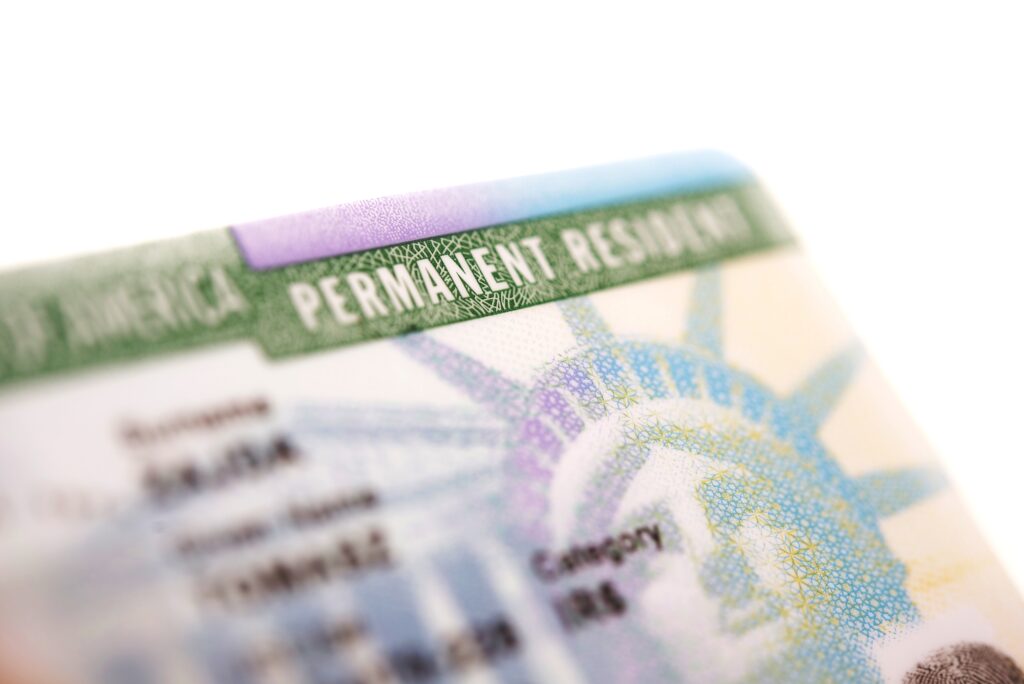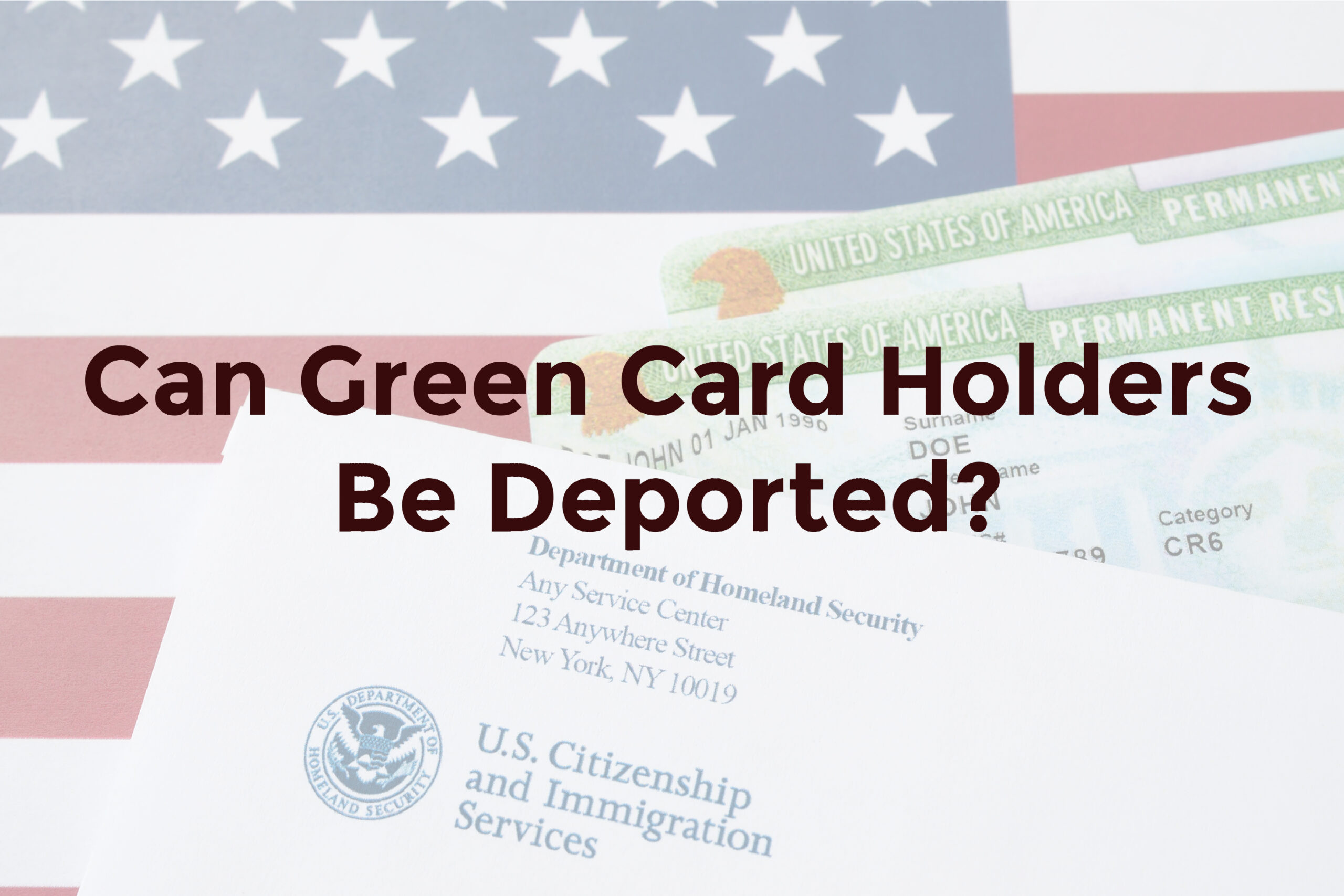“Permanent residency” doesn’t mean “forever.”
There are certain things that could get green card holders deported.
For millions around the world, living and working in the United States is seen as the ultimate goal. Last year—during a global pandemic, no less!—the Department of State issued nearly 250,000 visas.
And if long-term American residency is something you strive for, you’ve likely spent some time researching potential threats to your dream—namely: Is there anything that can get green card holders deported?
In this article, we’ll explain exactly what a green card is, what it guarantees, and what circumstances could get green card holders deported.
What Is a Green Card?
While the government does issue you a physical card (similar to a driver’s license), the card itself does not provide you with any special benefits. Rather, your green card is merely proof of your current status as a lawful permanent resident, or LPR.

LPRs are allowed to live in the United States indefinitely, work, own property, serve in the military, attend school, receive welfare and financial aid, and pay taxes.
However, having your green card is not the same thing as being a United States citizen.
Green card holders cannot vote in U.S. elections, serve on a jury, or be issued a United States passport and must renew their card every 10 years.
Can Green Card Holders Be Deported?
It is important to note that “permanent” does not mean “irreversible.” Green card holders can be deported if they break certain laws.
The crimes that will get green card holders deported typically fall under two main categories: a) Crimes of Moral Turpitude (CMTs) and b) aggravated felonies.
While it’s fairly easy to determine the types of crimes that may be labeled as “aggravated felonies” (serious crimes, such as espionage, terrorism, murder, etc.), CMTs are a little more difficult to define.
There is no legal definition for Crimes of Moral Turpitude—it is usually left to the Court’s discretion—but is generally used to describe actions that were “accompanied by a vicious motive or corrupt mind.”

In very general terms, CMTs are those crimes which fail to show the “good moral character” that is a requirement for obtaining a green card in the first place. The U.S. government wants to know that its residents are law-abiding people who support the democratic process and committing tax fraud or getting a DUI do not create this impression.
If you are charged with any crime as a green card holder, it is imperative that you contact an immigration lawyer who can advise you of your rights and represent you.
What If I’m Married To a U.S. Citizen?
If you are convicted for a “deportable” offense, your green card can be revoked. Marriage to a United States citizen does not provide any protection from getting deported.
In some ways, married green card holders are subject to slightly more scrutiny than non-married LPRs. The government is always on the lookout for those who get married for the sole purpose of obtaining a green card. If your marriage is found to be “illegitimate,” you can have your green card revoked.
Similarly, you may also be eligible for deportation (in certain circumstances) if you get divorced.
For the first two years of marriage (or if you entered the country as a fiancé), the non-citizen will receive “conditional permanent residency.” This status is valid for two years, after which you may apply for your lawful permanent residency.
If you get divorced as a conditional permanent resident, you could face deportation unless you can prove that:
- The marriage was legitimate and entered into “in good faith”;
- You would face “extreme hardship” if forced to leave the U.S.; or
- You were a victim of spousal abuse.
An immigration attorney can assist you in filing a Petition to Remove Conditions on Residence.
Conclusion
Having a green card is a secure method of remaining in the country where you feel most at home. If you so choose, it can be a great first step to becoming a United States citizen.
Naturalized citizens are entitled to the same rights and privileges as natural born Americans. With few (rare) exceptions, there is no risk of becoming deported once you acquire U.S. citizenship.
If you have questions about your immigration status or need assistance with an open criminal case, an immigration lawyer should be your first call.
Let ProPrudence connect you with a licensed Georgia immigration lawyer via secure video chat to discuss your case, free of charge.





